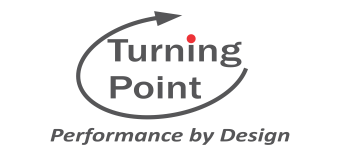Learnings from Covid
There is much written, analysed and dissected on the learnings from Covid 19. The learnings can be viewed differently for different individuals and corporates. There are qualitative life aspects that can be picked up as learnings from this pandemic such as, simplifying ones life, building immunity, respecting nature and the like. For corporates, it would be good to look at some very raw practical learnings that must be picked up and implemented forthwith.
Corporates need to consciously make efforts to keep their operating costs low. When a pandemic of this nature (or any other economic and humanitarian event of similar nature) devastates a significant part of the corporate ecosystem, dropping the demand for their products and services and consequently the revenue, what keeps them afloat is only their control on costs. Because that is the only thing that remains in their control. Unpleasant corporate decisions may have to be taken by organisations, but a lean cost structure would make it easier, by reducing the number of such decisions.
Invest early on technology. Design processes driven by technologies that can function with minimal people intervention and support. By ‘people’ here, we don’t mean only employees, but also customers. Why Customers? The technology and processes to be designed such that it can deliver the product or service to a customer without bothering the customer with too many questions, visits or documentation. For example, even a vegetable vendor or a grocery store can have an order placing mobile application for their customers in their neighbourhood; in a sense this would be miniaturising e-commerce and applying it in a widespread manner.
Corporates, besides taking care of their people financially (right salary for right work), must focus on their general health and well-being as well. An earnest effort towards facilitating a good health regimen for its people, in terms of fitness programs and health check routines, would go a long way in retaining productivity and keeping its people motivated.
Invest in a corporate culture that fosters respect for everyman’s work. Every level of work, every type of work has a certain importance attached to it and people across all verticals, all levels need to recognise this. A humanitarian and economic crisis of the nature of Covid, impacts most the people in the bottom most cadre. A pertinent mention here would be – a shop floor worker in a manufacturing concern, a relationship officer in a service provider company or a housekeeping unit of cleaners – though low cost, they constitute the backbone of the corporate. Their work must be respected, recognised and adequately rewarded. The world has never before realised the importance of cleaners and garbage collectors, as much as it did during the Covid crisis. Same goes for the labour class workers, who left big and mid-sized cities and reverse migrated to their native villages.
With all of the above, a hygiene conscious work environment is a must. This would include, first a hygienic work place, supported by a culture focussing on work completion rather than ‘loading of work’ and ‘keeping people tied-down’. The organisation, constituted by its people should always feel like ‘moving on’, and not stuck at a place because of its internal bureaucratic bottlenecks.
It is absolutely important for corporates to preserve and nurture the bonding with its people. Decisions such as disciplined work hours and work days i.e. work permitted only within official work hours, no working on holidays, will go a long way in fostering people loyalties towards the company. A company will find it easier to retain such a team, even with a tad lower cost. This is because respect and dignity, the two important drivers of self-esteem (besides money), are adequately taken care of by the employer.
If a corporate takes care of the above, the impact of the economic and humanitarian crisis that is felt in the environment outside the corporate, will get significantly subdued with respect to its internal people.


